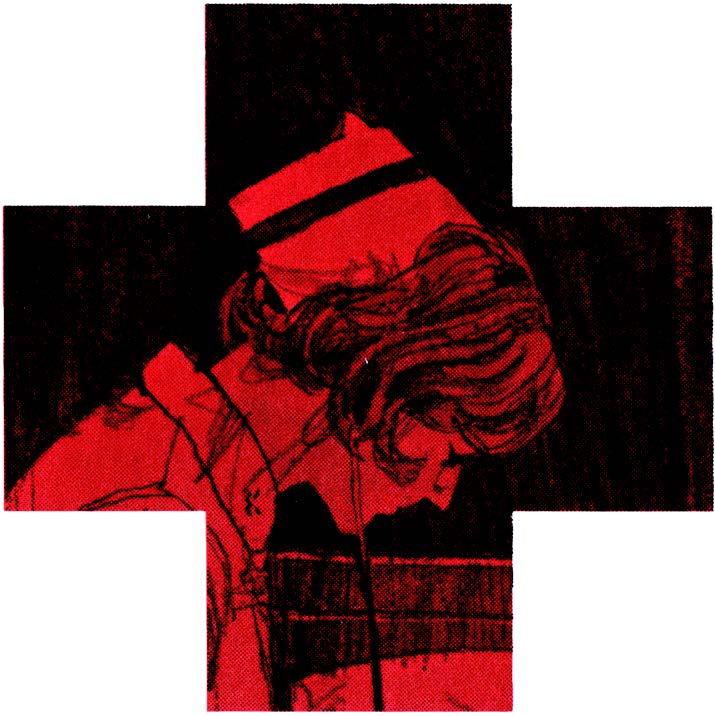Fence 39 has coalesced during the 21st century’s first pandemic, a globalinflection point — or ongoing duration — from which we must all pivot. No matter the scope of the task before us, we ask ourselves how do we do this, now? How can we do this now? And the fuzzy and foggy shape of the now continues to morph and mutate, as viral transmissions continue and variants recombinate: no clear end of the pandemic is yet in sight. We issued a call into the networks of healthcare for submissions of any type of writing specifically from nurses. We have devoted 39’s entire OTHER section to these authors’ words. We have little interest in polite gesture, lip-service appreciation, or some other how-can-we-put-it hollow performativity thanking those whose careers address the body and mind through the practice of nursing. Take for example when the United States Empire designates the shortest month as “officially” devoted to Black History, maintaining settler-colonizer hegemony throughout the other long eleven months. We offered the call to nurses for this issue, but the call will always remain open, a call to all for whom writing is a labor only accomplished in stolen pockets of time. One whose primary self-designation is “writer” or “poet” should give some careful thought to what it takes to pull off a hyphenated doing like the nurse-writers in this issue.
We know and care that nurses — like other systemically-devalued Care Workers — were already chronically overworked, under-compensated, and underrecognized even before the pandemic. Nurses attend to all our maladies, wounds, and frailties very literally from birth to death and are the quintessential Essential Workers, yet for the most part are invisible and inaudible in media and the arts, their voices and presence seemingly represented in inverse proportion to the importance of their labor to sustaining our lives. Against such a large affliction as systemic exploitation and erasure, a remedy is in our power as editors is that we actively open wide our attention and supply call and platform for, and amplification of under-heard and under-read words. The writings we received seem to us perfect reading for the present moment for so many reasons.
I recently chanced upon a concise how we do this, now, glancing through the firsthand reportage of novelist, poet, and teacher David Matlin in his harrowing 2009 book Prisons: Inside the New America: from Vernooykill Creek to Abu Ghraib. Matlin recounts his own serendipitous encounter of a brief excerpt from Frank O’Hara’s 1965 essay for the American artist Robert Motherwell’s exhibition at the Museum of Modern Art. O’Hara credits the greatest works by the Abstract Expressionists as enabling “that one might experience the traumatic consciousness of emergency and crisis as personal event,” and that one might thus assume “responsibility for being alive here and now, no matter how accidentally.” Matlin invokes this quote both to remind himself and to share with his imprisoned poetry students that the words of poets may be put to the same use — and I repeat it here for your consideration when approaching the prose and poetry and OTHER writing by nurses we present to you.
COVID-19 is not the only contemporary emergency and crisis, of course, and while the Fence nurse selections are each in some way a direct response to the pandemic, some report back in detail from other seismically active American fault lines and primarily engage with longer running crises or internal landscapes. Before the pandemic filled hospitals and morgues beyond capacity, American nurses were already triaging, staunching, and suturing the messy and prolific collateral damage of a nation whose number one industry and export is war, its economy also heavily dependent on the mass distribution of opioids, guns, and fast and cheap food and automobiles; its quotidian precarity and structural injustice and deregulated industrial-everything-complex inducing both acute and chronic physical and mental harm in ever-increasing percentages of the general population.
The nurses’ writings that we present embody the original sense of the feminist, intersectional notion that the personal is the political. An oppressed individual’s struggles are not theirs alone, must not be theirs alone to witness or bear. These burdens are never resolved through individual solutions but by collective, structurally transformative liberation. At the same time, it is through individual visions and accounts of specific personal situations that we collectively can come to deeply understand the mechanisms and harms of structural oppressions.
In 2021, well into the Covid pandemic, The Other Editors of Fence, Sarah Falkner and Jason Zuzga, issued "A Call for Writing by Practicing Nurses" that circulated widely, the text of which you can read here.
In Issue #39 and here online, we include the resulting portfolio of essays, poetry, and witness across the nursing specialties. The work offers us hard-fought wisdom, raw emotion, beauty, and no easy answers. This is a Covid-era Fence space of encounter between the art of nursing and the art of literature, for literary writers and nurses to meet, learn from each other, and cross-pollinate through words.
A PORTFOLIO OF WRITING BY NURSES: TABLE OF CONTENTS • Tina Carlson • KD Seluja • Sally Helmi • Christine Riley • Jane Slemon • Renata Bubadué • Diane Kraynak • Geraldine Gorman • Charles March III • Mary Ann Thomas • Sarah Comey Cluff • Brenda Beardsley • Shirley Stephenson • Nicole Aicher • Amanda Reilly • Angela Todd • D. Liebhart

